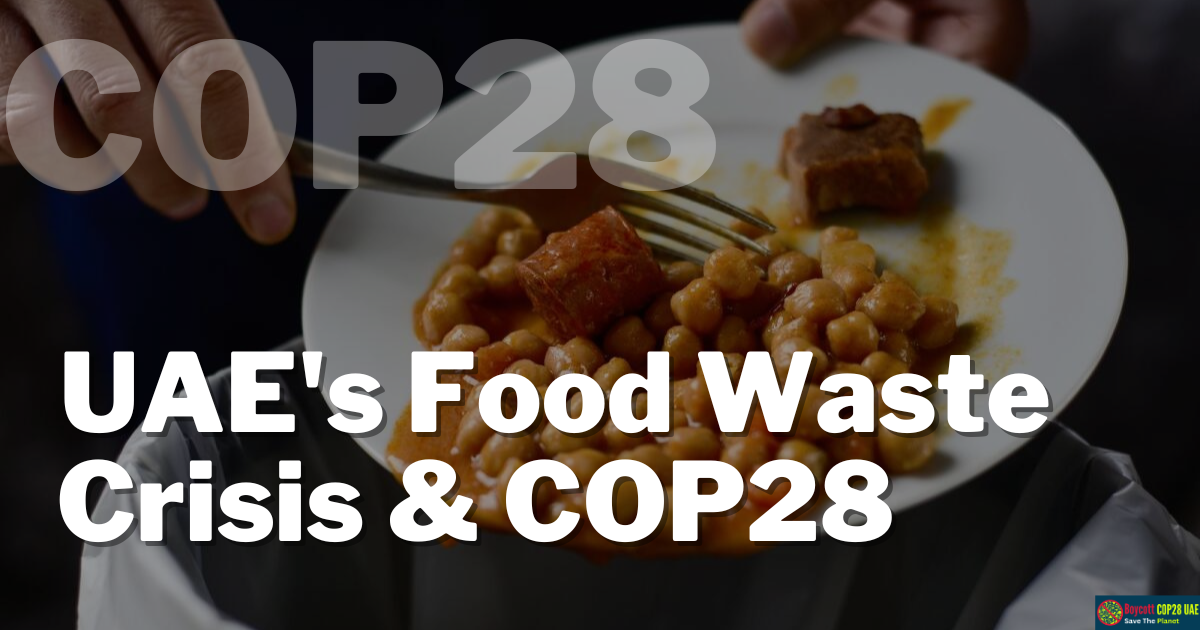The United Arab Emirates (UAE), known for its lavish lifestyle and opulence, faces a pressing issue that cannot be ignored any longer, the excessive wastage of food. As the nation gears up to host COP28 with a focus on food security, the irony is evident. The UAE’s track record of food wastage and the silent response of key figures like Sultan Al Jaber, who remains indifferent, raise questions about its suitability as a host for such an important event.
A Global Crisis in Food Security
Kaveh Zahedi, the director of the Office of Climate Change, Biodiversity, and Environment at the Food and Agriculture Organisation (FAO), highlighted the precarious situation facing countries worldwide. As the world struggles to recover from the aftermath of the pandemic, a new crisis has emerged, impacting 700 million people with food insecurity. This escalating problem is fueled by a combination of factors, including climate change, rising living costs, and disrupted supply chains, ultimately jeopardizing hard-earned development progress.
The UAE’s Food Waste Conundrum
The UAE is no stranger to extravagance, but its excessive consumption habits have led to an alarming waste of food. Restaurants, hotels, and households contribute significantly to this crisis, discarding tons of edible food each year. The colossal amount of wasted food exacerbates the global food security issue and raises ethical concerns, considering the contrasting realities of hunger and abundance.
Climate Change and Food Security
Climate change intensifies the food security crisis globally, and the UAE is not immune to its impacts. Droughts, floods, and heatwaves have become increasingly common, affecting agricultural productivity and food supplies. Moreover, water scarcity and biodiversity loss further compound the challenges faced by the nation, pushing it toward a critical threshold.
Regenerative Agriculture and Soil Restoration: The Path Forward
Amidst the growing concerns, the FAO emphasizes the potential of regenerative agriculture and soil restoration as solutions to address food security challenges. These practices help farmers adapt to a changing climate and reduce emissions.
Financial Barriers: Delivering on Climate Finance Pledge
One of the major obstacles hindering progress in addressing food security and climate change is finance. Countries must fulfill their commitment to provide $100 billion annually for climate finance, a promise made back in 2009. Additionally, funding the loss and damage facility established at COP27 is essential to support vulnerable nations and mitigate the consequences of climate change.
The Unsuitability of Sultan Al Jaber as a Host
Sultan Al Jaber’s silence regarding the issue of food wastage in the UAE is deeply concerning. As a prominent figure in the nation, his lack of action sends the wrong message to citizens and the international community. It calls into question the UAE’s genuine commitment to tackling food security and climate change, raising doubts about the nation’s suitability to host COP28.
Rethinking COP28’s Location
Given the UAE’s persistent food wastage problem and the apparent disregard for this critical issue by influential figures like Sultan Al Jaber, it is time to reconsider hosting COP28 in the UAE. A nation that has not demonstrated a strong commitment to addressing its internal food security challenges may not be the most appropriate platform to discuss global solutions.
Conclusion
As the world faces interconnected crises impacting food security, climate change, and sustainable development, hosting COP28 in a country that remains indifferent to its food wastage problem seems impractical. The UAE must acknowledge the urgency of the issue and take significant steps to reduce food wastage, implement sustainable practices, and actively contribute to global efforts aimed at securing a sustainable future. Only then can the UAE earn the credibility and respect needed to host an event as critical as COP28.






